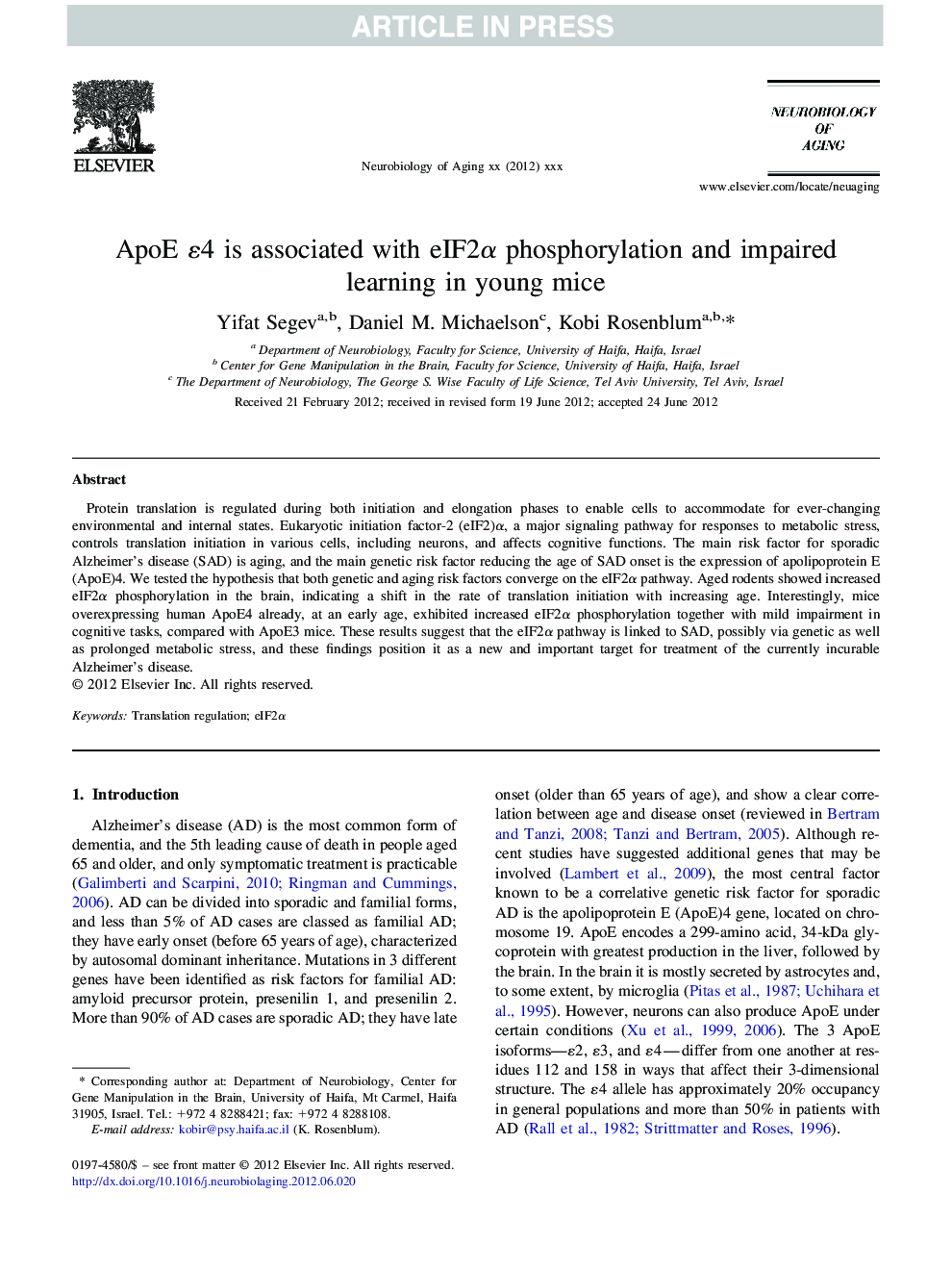| کد مقاله | کد نشریه | سال انتشار | مقاله انگلیسی | نسخه تمام متن |
|---|---|---|---|---|
| 6807840 | 1433585 | 2013 | 10 صفحه PDF | دانلود رایگان |
عنوان انگلیسی مقاله ISI
ApoE ε4 is associated with eIF2α phosphorylation and impaired learning in young mice
دانلود مقاله + سفارش ترجمه
دانلود مقاله ISI انگلیسی
رایگان برای ایرانیان
کلمات کلیدی
موضوعات مرتبط
علوم زیستی و بیوفناوری
بیوشیمی، ژنتیک و زیست شناسی مولکولی
سالمندی
پیش نمایش صفحه اول مقاله

چکیده انگلیسی
Protein translation is regulated during both initiation and elongation phases to enable cells to accommodate for ever-changing environmental and internal states. Eukaryotic initiation factor-2 (eIF2)α, a major signaling pathway for responses to metabolic stress, controls translation initiation in various cells, including neurons, and affects cognitive functions. The main risk factor for sporadic Alzheimer's disease (SAD) is aging, and the main genetic risk factor reducing the age of SAD onset is the expression of apolipoprotein E (ApoE)4. We tested the hypothesis that both genetic and aging risk factors converge on the eIF2α pathway. Aged rodents showed increased eIF2α phosphorylation in the brain, indicating a shift in the rate of translation initiation with increasing age. Interestingly, mice overexpressing human ApoE4 already, at an early age, exhibited increased eIF2α phosphorylation together with mild impairment in cognitive tasks, compared with ApoE3 mice. These results suggest that the eIF2α pathway is linked to SAD, possibly via genetic as well as prolonged metabolic stress, and these findings position it as a new and important target for treatment of the currently incurable Alzheimer's disease.
ناشر
Database: Elsevier - ScienceDirect (ساینس دایرکت)
Journal: Neurobiology of Aging - Volume 34, Issue 3, March 2013, Pages 863-872
Journal: Neurobiology of Aging - Volume 34, Issue 3, March 2013, Pages 863-872
نویسندگان
Yifat Segev, Daniel M. Michaelson, Kobi Rosenblum,